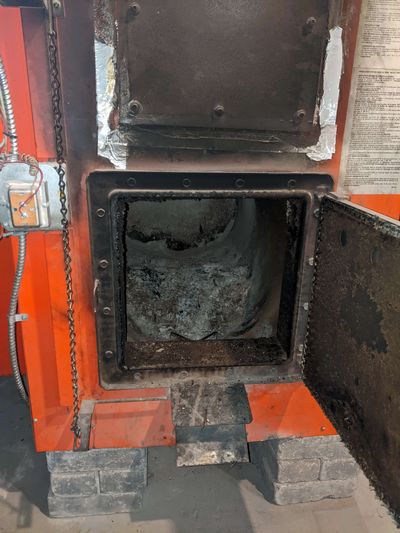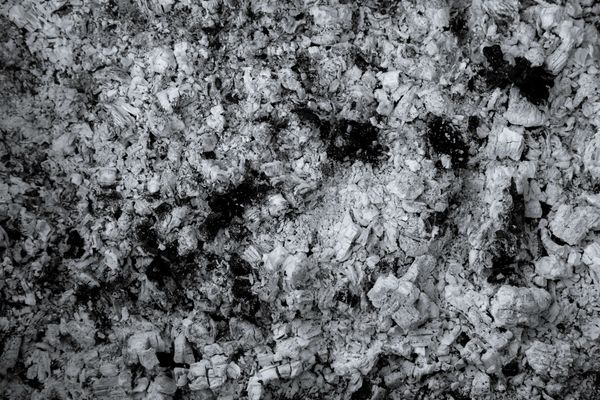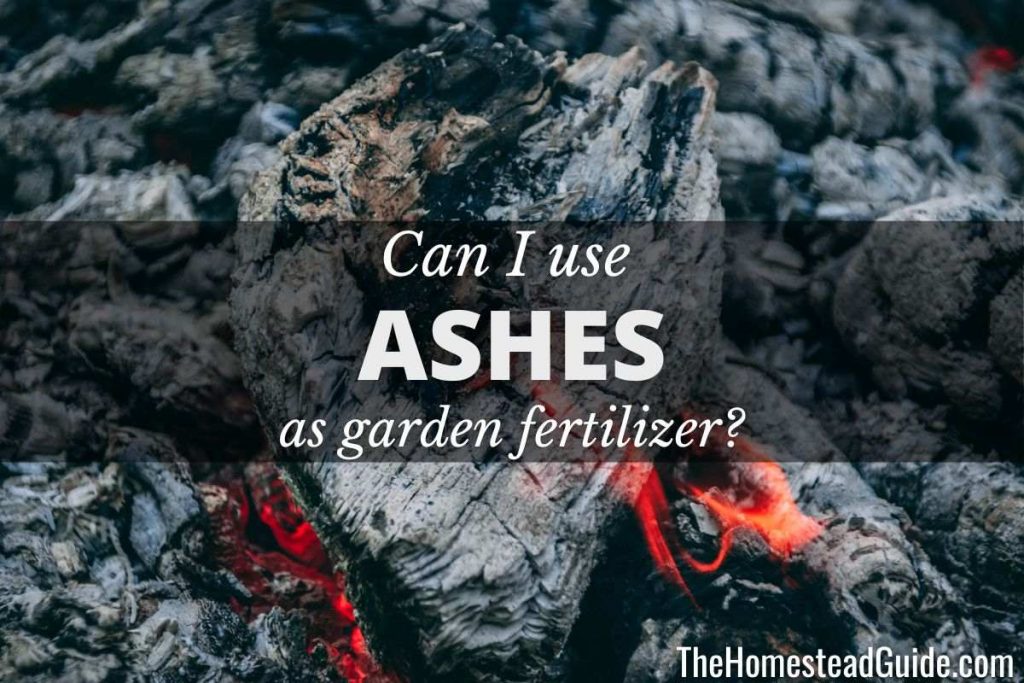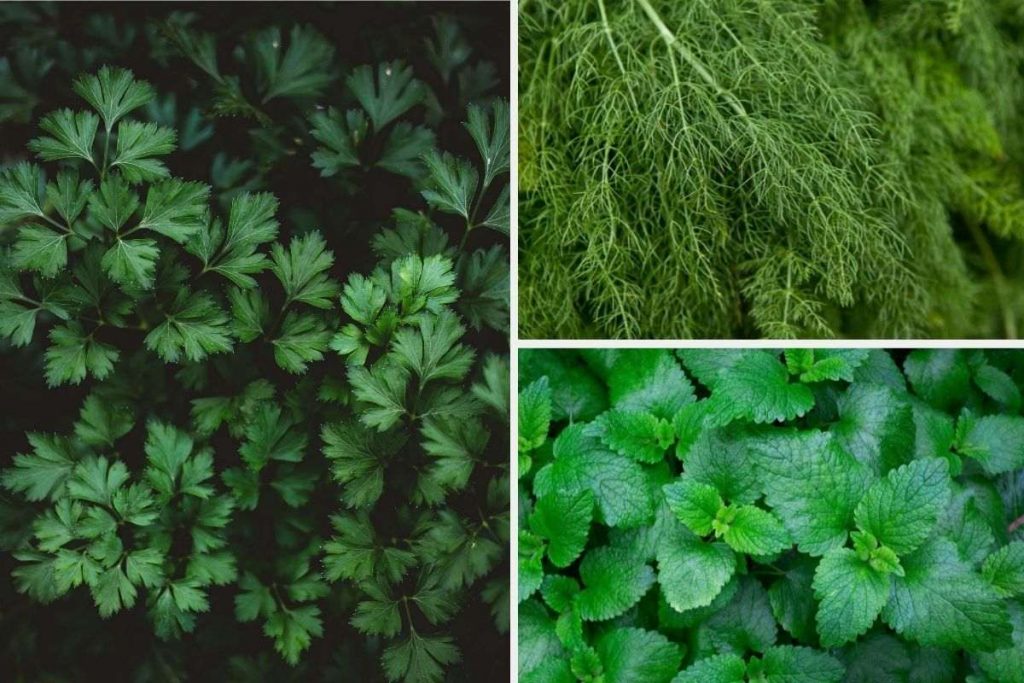A common question among homesteaders and gardeners is, “can I use ashes as fertilizer?” If this is you, you may be wondering if ashes from your fireplace or wood stove are good for fertilizing your garden.
Keep reading to learn about using ashes in the garden and what you need to know before trying it out. Learn more about the benefits of using ashes as fertilizer and other things in this post. Happy gardening!
Can I use ashes as fertilizer?
The answer is essentially “yes” but with a few considerations. One, wood ash is more of a soil amendment than a fertilizer. What is a soil amendment, you ask? A soil amendment is anything you add to the soil to change its properties. This could be to enhance its moisture retention, change the pH, improve drainage, etc. The difference between a soil amendment and a fertilizer is that a fertilizer adds nutrients to the soil where amendments physically modify the soil in some way.
So, do ashes help plants grow? Wood ash can be considered as both a fertilizer and a soil amendment. Since it is derived from plant material, it does contain many essential nutrients needed for plant growth such as potassium, phosphorus and magnesium. On average, you could consider wood ash as a light 0-1-3 fertilizer.
Using ashes in the garden
Let’s take a look at the different ways to use ashes in the garden and how to do it safely.

Earlier, I mentioned that ashes are often added as a soil amendment. That is because wood ash is high in calcium and has similar properties to agricultural lime, meaning that it is alkaline in nature and can raise the pH of the soil, or in other words, reduce the acidity. Ashes are good for plants that benefit from alkaline soil, but make sure not to spread it around acid-loving plants like strawberries, blueberries, potatoes, azaleas and many others.
Wood ash is also a type of organic pest control that can kill soft-bodies pests like snails, slugs and invertebrates. If you’re an organic gardener like me, you’ll want to go for natural remedies rather than introducing chemicals into the environment, especially in your garden that you’ll be eating from.
If you’ve got a compost pile going, adding wood ash is a good idea to help keep the pH at a neutral level, especially if you are composting some acidic substances such as chicken poop. Sprinkle ash over each layer of compost as you pile it up. In addition to maintaining an ideal environment for composting to occur, it also adds some trace nutrients into your compost.
Oh, also – chickens LOVE dust bathing in wood ash! Make sure you mix it into existing soil, though, as you don’t want to harm their little lungs breathing in ash dust.
A few words of caution

It is very important to keep in mind a few things before working with wood ash. As homesteaders, it’s crucial that we understand exactly what we are working with.
One, not all wood ash is created equal. Hardwoods including oak, ash, cherry, hickory, walnut and maple contain a lot more nutrients and produce a lot more ash than softer woods like pine, fir and spruce.
Also, never use any chemically treated lumber.
Chemically treated wood, including wood that is pressure treated, water treated, painted or stained, contains chemicals that are toxic for the soil and the plants growing in it.
Wood ash is best used lightly scattered over the soil, mixed into the soil or composted in your compost pile. Take the same safety precautions you would if you were using bleach or any other strong alkaline material – wear gloves and, especially if it’s windy outside, use eye protection and wear a dust mask. You do not want to be breathing in ash or getting it in your eyes!
Most importantly, do not get it wet in larger quantities.
Wood ash contains potassium carbonate (pearl potash) and potassium hydroxide (potash), and these compounds react with water and can leach out a lye solution that causes caustic burns to the skin. Although this is not a common occurrence, you do not want it to accidentally happen to you or your child if the conditions are there.
As long as you keep these easy-to-follow safety precautions in mind, it is perfectly find to use ashes as fertilizer or a soil amendment.
Conclusion
You can use ashes as a fertilizer or soil amendment and is a great organic solution to add potassium and phosphorus to your garden. However, you should take some precautions to make sure you are using it safely. Are you using wood ash in your garden? What do you use it for? Let me know in the comments. And don’t forget to share this post with your friends – they may want to start using ashes in their gardens, too!
Also, check out our top 10 heirloom cucumbers and top 10 heirloom cherry tomatoes for some great planting ideas!
And if you’re looking to get started with homesteading and organic gardening, make sure to check out our Complete Guide to Organic Gardening and why you should plant heirloom seeds this year.





